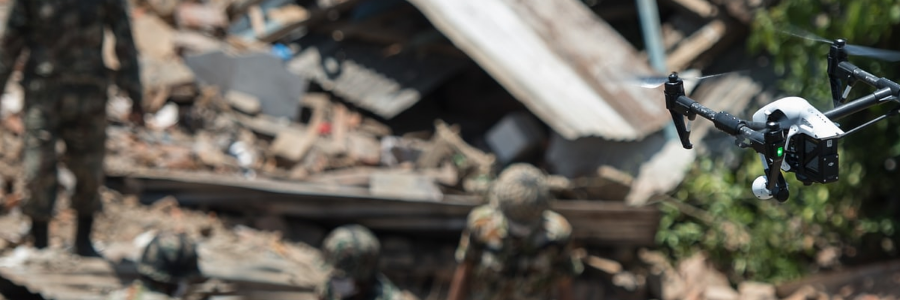The Government of Malawi and UNICEF today launched an air corridor to test potential humanitarian use of unmanned aerial vehicles (UAVs), also known as drones. The corridor is the first in Africa and one of the first globally with a focus on humanitarian and development use.
It is centred on Kasungu Aerodrome, in central Malawi, with a 40km radius (80km diameter) and is designed to provide a controlled platform for the private sector, universities and other partners to explore how UAVs can be used to help deliver services that will benefit communities.
“Malawi has over the years proved to be a leader in innovation and it is this openness to innovation that has led to the establishment of Africa’s first drones testing corridor here in Malawi. We have already used drones as part of our flood response and we can see the potential for further uses, such as transportation of medical supplies, which could transform lives in remote rural communities,” Malawi’s Minister of Transport and Public Works, Jappie Mhango.
The Humanitarian UAV Testing Corridor will facilitate testing in three main areas:
1. Imagery – generating and analyzing aerial images for development and during humanitarian crises, including for situation monitoring in floods and earthquakes;
2. Connectivity – exploring the possibility for UAVs to extend Wi-Fi or cellphone signals across difficult terrain, particularly in emergencies;
3. Transport – delivery of small low weight supplies such as emergency medical supplies, vaccines and samples for laboratory diagnosis, including for HIV testing.
The UAV corridor will run for at least one year, until June 2018. Since the announcement in December 2016, 12 companies, universities and NGOs from around the world have applied to use the corridor. This includes drone manufacturers, operators and telecom companies such as: GLOBHE (Sweden) in collaboration with HemoCue and UCANDRONE (Greece), and Precision (Malawi), all of which were present at the launch to demonstrate connectivity, transportation and imagery uses respectively.
“This humanitarian drone testing corridor can significantly improve our efficiency and ability to deliver services to the world’s most vulnerable children. The success of these trials will depend on working in new ways with the private sector, government and local entrepreneurs and engineers who can ensure that technologies deliver appropriate solutions for the people who need them the most,” UNICEF Office of Global Innovation Principal Adviser Christopher Fabian.
UAV technology is still in the early stages of development. UNICEF is working globally with a number of governments and private sector partners to explore how UAVs can be used in low-income countries. All projects adhere to a strict set of innovation principles, with a focus on open source and user-centered design.
Source: UNICEF. Read full information.
29 June, 2017

